Prof. de Mattei's defence of Francis' legitimacy fails—here's why
In the wake of three shockingly heretical statements, Professor Roberto de Mattei has published an article defending Francis' claim to the papacy. But does it stand up to scrutiny?
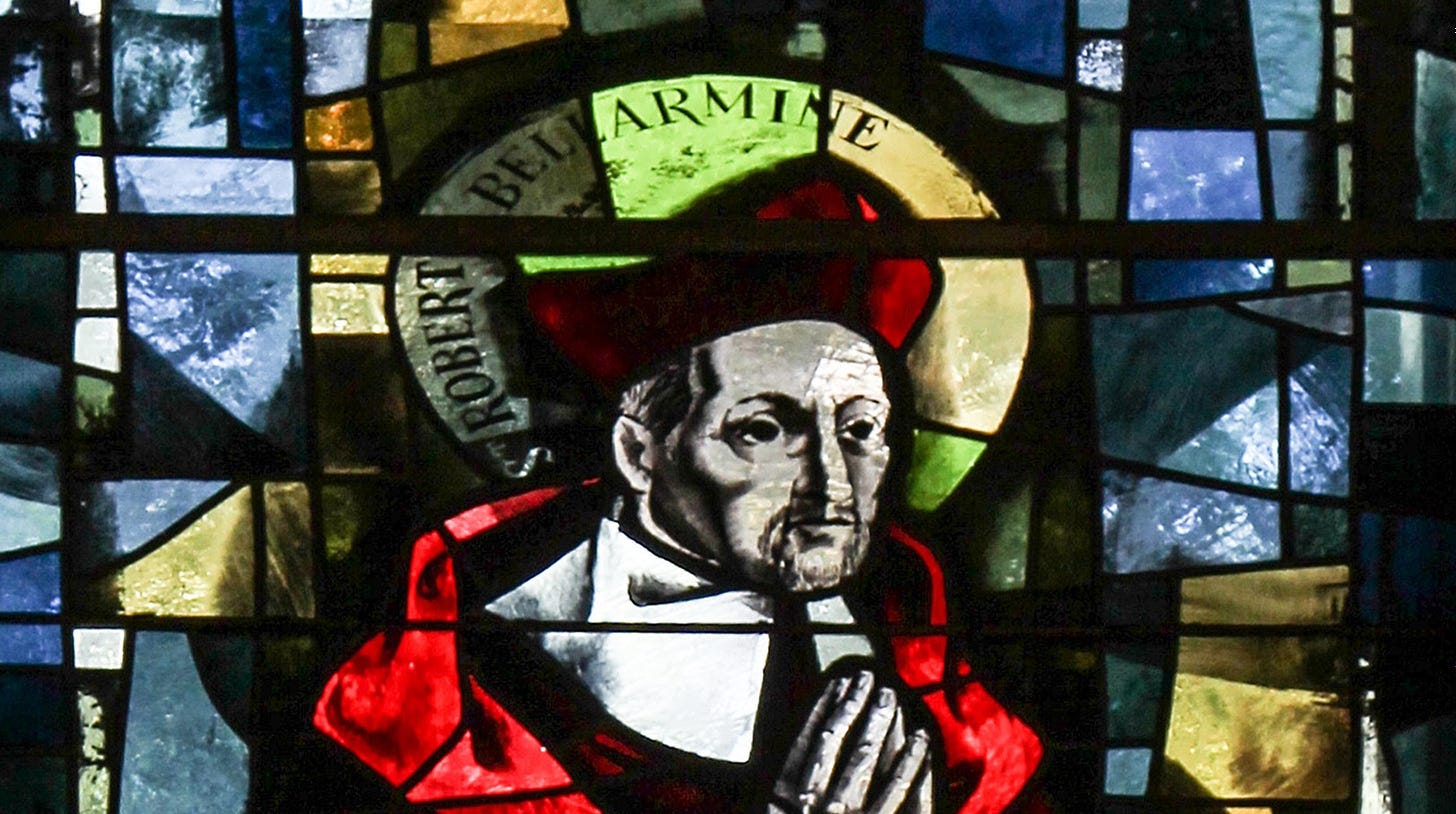
In the wake of three shockingly heretical statements, Professor Roberto de Mattei has published an article defending Francis' claim to the papacy. But does it stand up to scrutiny?
Introduction
On 25th September 2024, Voice of the Family published an article by the historian Professor Roberto de Mattei, entitled “On the problem of the heretical pope.”
This article defends Francis’ claim to the papacy, which de Mattei argues continues to be legitimate in spite of the three heretical comments made recently about false religions.1
For reasons discussed elsewhere, these comments arguably constitute apostasy.
In my opinion, writing in defence of Francis’ claim at this point is a serious misuse of time and energy. Nonetheless, in this piece, we shall analyse de Mattei’s article paragraph by paragraph.
Arnaldo da Silveira’s research
De Mattei writes:
In a benchmark book, Ipotesi teologica di un Papa eretico (Chieti, Edizioni Solfanelli, 2018), Arnaldo Xavier da Silveira (1929–2018) offered a systematic exposition of the question of the heretical pope. On the basis of thorough research, the author demonstrates how the possibility that a pope could fall into heresy is acknowledged by most theologians. There is no consensus, however, in establishing whether a heretical pope would lose his office, or, if so, when and how this would happen.
The most plausible view, according to da Silveira and other authors, seems to be that of Saint Robert Bellarmine, according to which a pope who fell into public and widely known heresy would cease to be a member of the Church, and therefore would cease ipso facto to be head of the Church.
This is indeed what da Silveira found—and in his final theological work before his death, which we recently re-published, he expands on this even further:
De Mattei continues:
On this basis, some sedevacantists argue: a) Francis has demonstrated, by his words and actions, that he is a public heretic; b) if Francis is a public heretic, then he is no longer a member of the Church, in which case he cannot be considered the true head of the visible Church instituted by Christ; c) therefore Francis is not the pope, but is simply Jorge Mario Bergoglio, “inimicus Ecclesiae”.
Correct. However, he continues:
In reality, the problem is more complex and must be addressed in the light of the teaching of Saint Robert Bellarmine and the most reliable theologians.
Crucial aspects of Pius XII’s teaching overlooked
De Mattei proceeds to discuss the teaching of Pius XII in Mystici Corporis, including the visible and external nature of the Church, and how supernatural faith is necessary in order to be saved. He adds:
Whoever commits the very grave sin of heresy separates himself from the soul of the Church.
In itself, this comment is innocuous. The sin of heresy is a mortal sin which separates a man spiritually from the Church—like all mortal sins. However, de Mattei seems to be arguing that the sin of heresy (and we understand him to mean even the secret and internal sins of heresy) separates a man from what is sometimes metaphorically called “the soul of the Church” in a way that is distinct to the separation caused by mortal sin, whilst still leaving him a member of the visible society. Given that de Mattei merely implies or presumes the legitimacy of this distinction without providing direct proof, it falls with a simple denial.
He continues:
Whereas belonging to the body of the Church requires three elements: the outward profession of the Catholic faith, participation in the sacraments of the Church and submission to the legitimate pastors. Are heretics automatically separated from the body of the Church as well?
De Mattei then goes on to quote this encyclical, saying:
“… only those are to be included as members of the Church who have been baptized and profess the true faith, and who have not been so unfortunate as to separate themselves from the unity of the Body, or been excluded by legitimate authority for grave faults committed.”2
He neglects to add the text from the following paragraph, which clearly states that even the sins of schism, heresy and apostasy are “such as of [their] own nature to sever a man from the Body of the Church”:
“For not every sin, however grave it may be, is such as of its own nature to sever a man from the Body of the Church, as does schism or heresy or apostasy.
“Men may lose charity and divine grace through sin, thus becoming incapable of supernatural merit, and yet not be deprived of all life if they hold fast to faith and Christian hope, and if, illumined from above, they are spurred on by the interior promptings of the Holy Spirit to salutary fear and are moved to prayer and penance for their sins.”3
Nonetheless, based on paragraph n. 22, de Mattei alleges:
There is a distinction here, implicit but fundamental, between the legal and the spiritual separation of heretics from the Mystical Body, which reflects the difference between the soul and body of the Church.
The pope explains that, while heresy by its nature separates the person spiritually from the Church, legal separation occurs only when the person voluntarily leaves the Church or is separated from it by an ecclesiastical sentence.
In fact, as we have seen, Pius XII makes clear that the three sins mentioned are such as to constitute a severance or separation—both of which are voluntary—from the body of the Church.
To be clear, we are talking about acts which are public, as shall be discussed further below. We are not discussing internal or secret acts.
Is tacit renunciation of office voluntary or involuntary?
Da Silveira also understood Bellarmine to be teaching that public heresy (and schism and apostasy) constituted a voluntary departure. In the essay already mentioned, he explained that Bellarmine’s teaching—which is the only way of avoiding insuperable problems with other treatments of the matter—is that the heretic himself leaves the Church, voluntarily.
This, also, was the understanding of Canon 188 as presented by McDevitt, who also held that voluntary public defection from the faith brings about a tacit renunciation of office, notwithstanding any involuntariness regarding retaining the office (viz. in a person who voluntarily defects from the faith may wish to retain his office).4
As mentioned, we are talking about a public sin of heresy, qua act. This is the case for all treatments of this subject, although a minority of theologians extend it further (viz. they say that even secret heretics cease to be members of the Church). But we are evidently not talking about an internal or secret sin of heresy with Francis. Archbishop Lefebvre said in a common-sense way in 1986, regarding the Assisi meetings:
“But still, I think it is enough to consult theologians, to consult all those who have studied these questions, to see... It is highly probable that, overall, theologians say that the Pope cannot be a public heretic, thus professing a heresy publicly like that.
“But if there is something public, it is indeed what the Pope did, what he did two days ago. Perhaps a billion people on earth saw the Pope enter the Synagogue, as it is broadcast worldwide by satellites and the whole world could see it on television.”5
Da Silveira also said, in this context and referring to Wernz-Vidal:
“As ecclesiastical law does not apply to the Pope, it is clear that ‘public’ and ‘notorious’ are here to be understood in their everyday or de facto meaning, and not in the technical, canonical sense.”6
Conflating categories of sin and crime
By a public sin we are referring to an act, which is undoubtedly an act of heresy (or schism, or apostasy), without regard for whether it has been condemned as a crime or not. We are not discussing acts which should enjoy the benefit of the doubt, such as an otherwise orthodox cleric obviously mis-speaking in a sermon.
However, de Mattei writes:
One must not confuse the sin and the crime of heresy. The former belongs to the moral sphere, the latter to the juridical. Heresy, by its nature, constitutes a sin and separates us spiritually from the Church, also predisposing us to a juridical separation. But the spiritual bond is distinct from the juridical.
This is false. First, de Mattei is conflating public and secret (including internal) sins of heresy. Sins which are public are public acts, and thus may therefore pertain to the juridical sphere. This is evident from jurisprudence around matters already discussed, including the tacit renunciation of office in Can. 188, which is not a penal canon dealing with heresy qua crime. McDevitt actually writes:
“[T]his canon is not a penal canon. It is true that some of the acts enumerated in canon 188 constitute delicts, and have special penalties attached to them, but the effect of a tacit renunciation is not to be considered in the nature of a canonical penalty.”7
McDevitt also points out that Can. 188 lists several other causes of tacit renunciation which can in no way be considered as crimes—and yet they have the same juridical effect.
False dichotomy of Christ or the Church deposing a heretical pope
De Mattei continues:
Formal separation occurs when the authority of the Church recognises the crime of heresy, publicly condemning the heretic.
De Mattei provides no authority or reference for this claim. He continues:
But who has the authority to pronounce a sentence against the pope, who has no superior above him?
In fact, as de Mattei knows, this rhetorical question is a red herring. As da Silveira writes:
“In view of St. Robert Bellarmine’s real position, i.e. his adoption of the Fifth Opinion, it seems to me that the following statement made by Fr. Gleize calls for rectification: ‘For Cajetan, it is only the Church that causes the Pope’s forfeiture of office; for St. Robert Bellarmine, it is only Christ. For Suarez it is at the same time both Christ and the Church.’
“In fact, for St. Robert Bellarmine it is exclusively the Pope himself who, by embracing heresy, abandons the Church and therefore the papacy.
“According to Suarez, once formal heresy has been externalized, ipso facto Our Lord deposes the Pontiff, and then an imperfect Council declares this deposition before the visible Church. According to St. Robert Bellarmine, however, no one deposes him, not even Our Lord: it is the Pope himself who quits his office by positing an act incompatible with the papacy. Both analyses maintain that office is lost ipso facto, by the unequivocal exteriorization of formal heresy. Each position has the ipso facto element in common, but in what follows they differ. For St. Robert Bellarmine, as I have said, the loss of office is effected by the externalization of heresy. […]
“Let me repeat: St. Robert Bellarmine’s position is the only explanation of how the heretical Pope forfeits his office that does not require the intervention of any ecclesiastical organ. All others merit the criticism that St. Robert Bellarmine makes of Cajetan’s when he shows that any intervention of an official organ in the removal of a Pope would involve jurisdiction, i.e., the judgment of the Pope by the Church. Fr. Gleize’s failure to grasp St. Robert Bellarmine’s true opinion on this point is why he finds all the speculative solutions to the problem unsatisfactory. In fact, the only one that is satisfactory is that of the Jesuit doctor, which he misrepresents.”8
Despite giving this reality lip-service further on in the article, De Mattei is in the same position as the Fr Gleize mentioned, as we shall see in its due place.
Declarations by authority
De Mattei continues:
It is clear that any intervention by Church, cardinals or council would be a purely declarative action that would publicly manifest the existence of a crime of heresy.
The Vicar of Jesus Christ, in fact, is not subject to any human jurisdiction: his direct and immediate judge can only be God Himself.
This is correct, and not under dispute. We ourselves published a translation of Wernz-Vidal (whom he mentions further down) making this very point:
“Indeed, every judicial sentence of deprivation presupposes a superior jurisdiction over the one against whom the sentence is pronounced. However, according to the adversaries' view, a general council does not have superior jurisdiction over a heretical Pope, for before the council's declaratory sentence, he retains his papal jurisdiction; therefore, the council cannot pronounce a declaratory sentence that deprives the Roman Pontiff of his power. Such a sentence would be one pronounced by an inferior against a true Roman Pontiff.
“Thus, it must be said that a heretical Roman Pontiff loses his power ipso facto. However, a declaratory sentence of the crime, which as merely declaratory should not be rejected, does not have the effect that the heretical Pope is judged, but rather is shown to have already been judged, i.e., the General Council declares the fact of the crime by which the Pope, through heresy, has separated himself from the Church and deprived himself of his dignity.”9
In order for this to be relevant to whether Francis continues to be pope, de Mattei would need to demonstrate that such an intervention or declaration was necessary in order to manifest publicly the existence of the crime of heresy. He does not do this; he cannot do this, because it is false.
How public is “public”?
We have already seen that Archbishop Lefebvre and Wernz-Vidal said that “public,” in the context of a public heretic, should be understood in a common-sense way. It is public that he made these three statements; and it is public that he knows that he is departing from Catholic tradition in doing so. The only persons who deny or doubt this, do so because they have realised the implications of conceding it, and are seeking ways to avoid those implications.
However, de Mattei continues:
The pope can separate himself from the Church, but only by means of a widely known heresy, manifest to the Catholic people and professed with obstinacy. The loss of the pontificate, in this case, would be the result not of a dismissal by someone else, but of an act of the pope himself, who in becoming a formal and widely known heretic would have excluded himself from the visible Church, tacitly resigning from the pontificate.
As mentioned, de Mattei pays lip service to the idea that loss of office is due to tacit renunciation by the man’s own act; but in fact, the unduly high bar which he sets for the publicity of this act seriously undermines what he is saying. This becomes clear in his misleading citation of Wernz:
But an outwardly professed heresy can be defined as public without necessarily being widely known. The famous canonist Franz Xaver Wernz, in his Ius Decretalium (volume VI, 1913, pp 19–23), makes an important distinction between a public crime and a widely known crime.
A crime is publicum when, although common knowledge, it is not recognised as a crime by all people. ‘Widely known’ means moreover that the crime is recognised as evident by all: “Widely known facts do not need proof” (can 1747).”
This is all very well, except for the fact that Wernz-Vidal write not that the heretical pope loses office for “widely known” heresy, but for “public” heresy:
“[H]e who is no longer a member of the body of the Church, i.e., of the Church as a visible society, cannot be the head of the universal Church. But the Pope, who would fall into public heresy, would, by that very fact, cease to be a member of the Church; therefore, by that very fact, he would also cease to be the head of the Church.
“Moreover, a Pope who is publicly heretical, who by the command of Christ and the Apostles and due to the danger to the Church is to be avoided, must be deprived of his power – as nearly everyone admits. But he cannot be deprived of his power by a merely declaratory sentence.”
What follows the above text is the Wernz-Vidal text already cited, namely that “that a heretical Roman Pontiff loses his power ipso facto,” without a declaratory sentence (which nonetheless should not be rejected, as it is useful in itself, and necessary for further action in due course).
What does “public” mean? Can. 2197 treats of the matter of publicity, which shows that a delict can be notorious either by notoriety of law or by notoriety of fact:
Canon 2197: A delict is:
Public, if it is already known or is in such circumstances that it can be and must be prudently judged that it will easily become known;
Notorious by notoriety of law, [if it is] after a sentence by a competent judge that renders the matter an adjudicated thing, or after confession by the offender made in court in accord with Canon 1750;
Notorious by notoriety of fact, if it is publicly known and was committed under such circumstances that no clever evasion is possible and no legal opinion could excuse [the act];
Occult, if it is not public; materially occult, if the delict is hidden; formally occult, if imputability [is not known]10
It is worth observing what may seem obvious: the canon states that both notoriety of law and notoriety of fact establish notoriety. The relevant distinction is presented as being between two different means to establish the one concept of notoriety – not as different types of notoriety per se.
However, we are focused now on what is public. McDevitt defines “public,” in relation to a “public defection from faith,” as follows:
“[T]he defection from the faith may be public by reason of the fact that it is already known to a notable part of the community.
“The law does not prescribe any special number as being necessary to constitute a notable part of the community. Determination of this point is left to man's prudent judgment.”11
The bar here is extraordinarily lower than de Mattei and other writers try to set it. McDevitt also adds that “The authors are in agreement that this is the type of publicity postulated for making the defection a public one.”12 This is borne out in several canonical works, some of which are included here:13
Is the Catholic world aware of Francis’ malice?
De Mattei continues:
“Its being widely known presupposes the awareness, on the part of the one who hears heretical words, of the intrinsic malice of the one who speaks them.”
The idea that a sufficient number of Catholics lack the awareness that Francis speaks these words with the intrinsic malice of heresy (viz. that he is departing from the teaching of the magisterium as the proximate rule of faith) is not credible. Regarding the very topic at hand (false religions) we should also note that in 2021, Francis expressed similar ideas with a clear awareness of their novelty (the requirement for pertinacity and malice):
“If in the past, our differences set us at odds, nowadays we see in them the richness of different ways of coming to God and of educating young people for peaceful coexistence in mutual respect.”14
It is also clear in the observable fact that so many Catholics are prepared to say that Francis is not a Catholic, even if they are not yet prepared or able to say where that conclusion leads.
Universal peaceful acceptance ?
De Mattei continues:
If the one who speaks them is a pontiff, as long as this realisation is lacking and the pope is tolerated and accepted by the universal Church, the heretic will remain a true pope and, in principle, his acts will be valid.
Fracis is not “tolerated and accepted by the universal Church,” at least not in the sense relevant to the question. Having been at the forefront of steps taken against Francis’ doctrinal deviations, de Mattei should be well aware of that fact. It is incredible, given his participation in organising public resistance to Francis’s doctrinal positions, that de Mattei could claim that Francis is “tolerated and accepted by the universal Church.”
Regarding the validity of Francis’ actions, we should be clear that the acts of a non-Pontiff may in some (or many) cases be validated by supplied jurisdiction, including some of his appointments to offices to which ordinary jurisdiction are attached. This non-issue is, nonetheless, often a driving motive for those who feel they must insist that Francis is the pope.
De Mattei continues:
Today, the large majority of Catholics, starting with the ecclesiastical hierarchy, interpret pro bono the words and actions of Pope Francis. So we cannot say that his loss of faith is evident and manifest. Nor does it seem possible to prove his obstinacy.
This has already been addressed. Francis is by no means given the benefit of the doubt by the majority of Catholics and the hierarchy—unless, by these terms, we are to include those who themselves deviate from Catholic orthodoxy. But the testimony and opinions of such are hardly relevant for this question.
The idea that it is not evident and manifest that a man who has affirmed, in quick succession, that all religions are a path to arrive at God, that these differences are willed by God, and that we should all be guided by the “divine inspiration present in every faith,” is not credible.
Does it matter that the world is less Catholic than it was?
De Mattei writes:
Therefore the correct guidelines of the great classical theologians are difficult to follow in practice. When St Robert Bellarmine or Fr Wernz wrote their books, society was still Catholic, the sensus fidei was developed, and it was easy to discern the heresy of a priest, a bishop or even a pope. Today, the large majority of the baptised — ordinary faithful, priests, bishops — live immersed in heresy, and few are able to distinguish between the truth and the error that has penetrated within the Temple of God.
We will leave aside the denial of the visible unity of the Church here, and instead simply point out that none of this is relevant. The fact that so many putative Catholics “live immersed in heresy” has no bearing on the clarity of Francis’s recent public heresy, not to say apostasy.
He continues:
In conclusion, it could happen that a pope might separate himself spiritually from the Church while remaining canonically pope, just as it could happen that the faithful might separate themselves spiritually from a pope while recognising his canonical legitimacy.
Let us be clear: everyone agrees that a pope “might separate himself spiritually from the Church while remaining canonically pope,” in the sense of being in a state of mortal sin. But de Mattei is begging the question by assuming that this describes what is happening with Francis, just as he is begging the question in his category of men spiritually separate from the Church by the internal sin of heresy in a way distinct from that of mortal sin.
Such an assumption rests on the false requirement for the intervention of authority, and a mistaken reading of Pius XII’s teaching on how heresy, schism and apostasy separate a man, by their own nature, from the body of the Church.
Conclusion: de Mattei rejects Bellarmine’s doctrine in favour of his own
Finally, de Mattei writes:
True Catholics must separate themselves not from the pope but from the heresies and errors unfortunately professed from the highest summits of the Church, and then await everything from God.
On the contrary, St Robert Bellarmine writes:
“Hence the [false] argument goes like this: the Pontiff is the shepherd and teacher of the whole Church; therefore, the whole Church is bound to hear him and to follow him; therefore, if he errs, the whole Church will err. They will respond that the Church must hear him, if he teaches rightly, otherwise God should be listened to more than men.
“But I object to that; for, who will judge whether the Pontiff is teaching correctly or not? For it is not the part of the sheep to judge whether the shepherd errs or not, especially in matters truly doubtful. And Christian sheep do not have another major judge or teacher to whom they can appeal. For, as we showed above in book 2, chapters 13 and 14, from the whole Church one can appeal to the Pontiff, but there is no appeal from him. Necessarily, therefore, the whole Church will err, if the Pontiff errs.”15
This is indeed a dilemma. But Bellarmine himself provides the epistemological solution in another work:
“[T]he people indeed ought to discern the true prophet from the false, but by no other rule than by carefully attending to whether the one who preaches says things contrary to those taught by his predecessors, or to those taught by other lawful pastors, and especially by the Apostolic See and the principal Church; for the people are commanded to listen to their own pastors: Luke 10: ‘He that heareth you, heareth me.’ And Matthew 23: ‘What they say, do’ (Luke 10:16, Matthew 23:3).
“Therefore, the people should not judge their pastor unless they hear something new and contrary to the doctrine of other pastors.
“Furthermore, this is what Paul advises in Galatians 1: that we should anathematise those who teach new doctrines that are contrary to what has been preached before.”16
And as Bellarmine also taught elsewhere:
“[I]t would be a miserable situation for the Church, if she were forced to acknowledge as her shepherd a manifestly raging wolf.”17
Nonetheless, this “miserable situation” is precisely what is ensured for the Church by de Mattei’s attempts to avoid the reality—that Francis is a public heretic, and that by that fact (ipso facto) he is neither a Catholic nor the Roman Pontiff.
Further Reading:
HELP KEEP THE WM REVIEW ONLINE!
As we expand The WM Review we would like to keep providing free articles for everyone.
Our work takes a lot of time and effort to produce. If you have benefitted from it please do consider supporting us financially.
A subscription from you helps ensure that we can keep writing and sharing free material for all. Plus, you will get access to our exclusive members-only material.
(We make our members-only material freely available clergy, priests and seminarians upon request. Please subscribe and reply to the email if this applies to you.)
Subscribe now to make sure you always receive our material. Thank you!
Follow on Twitter, YouTube and Telegram:
These three statements are as follows:
“All religions are a path to reach God. They are – let me make a comparison – like different languages, different idioms, to get there. But God is God for everyone. And since God is God for everyone, we are all children of God.
“‘But my God is more important than yours!’ Is this true? There is only one God, and our religions are languages, paths to reach God. Some are Sikh, some are Muslim, some are Hindu, some are Christian, but they are different paths. Understood?” [Our translation (see note below). Emphasis added]
Tuesday 17 September 2024
“I invite you to learn together to discern the signs of the times. Contemplate the difference of your traditions like a richness, a richness God wants to be.
“Unity is not uniformity, and the diversity of your cultural and religious identities is a gift of God. Unity in diversity. Let mutual esteem grow among you, following the witness of your forefathers.”
Tuesday 17 September 2024 (reported Thur 25 September 2024)
“We need to keep meeting, to weave bonds of fraternity and to allow ourselves to be guided by the divine inspiration present in every faith, in order to join in “imagining peace” among all peoples. We need such “occasions to speak with one another and to act together for the common good and the promotion of the poor”.
Pope Pius XII, Mystici Corporis Christ, 1943, n. 22
Ibid, n. 23
Gerald McDevitt, The Renunciation of an Ecclesiastical Office, relevant sections available here:
https://www.wmreview.org/p/how-does-a-pope-stop-being-the-pope
Ibid.
Arnaldo da Silveira, Fr. Gleize and the question of the heretical pope, nn. 25-8:
Francis Xavier Wernz SJ Peter Vidal SJ, ‘On the Cessation of the Power of the Roman Pontiff’ From Ius Canonicum – Tome II, De Personis, Third Edition, Rome, 1943. nn. 450–454
The 1917 or Pio-Benedictine Code of Canon Law, in English Translation with Extensive Scholarly Apparatus, trans. Dr Edward Peters, Ignatius Press, San Francisco, 2001
McDevitt, ibid.
Ibid.
Meeting of the Holy Father Francis with the representatives of religions on the theme “Religions and Education: towards a Global Compact on Education”, 05.10.2021, Available here.
St Robert Bellarmine, Controversies of the Christian Religion, trans. Fr Kenneth Baker SJ, Keep the Faith Press, USA, 2016, 963.
St Robert Bellarmine Fifth Controversy: The Members of the Church – On the Clergy Book I, Chapter VII
Bellarmine (Baker), 840.




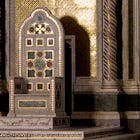
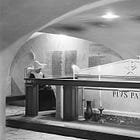
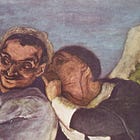
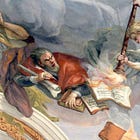
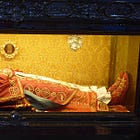
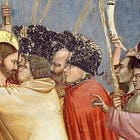
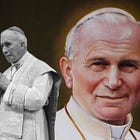
At some level, I wonder if Bergoglio is goading people into defending him and forcing them to stay stupid. If my understanding of personality is correct, he relishes the power his statements elicit when they force people to look dumb defending him...